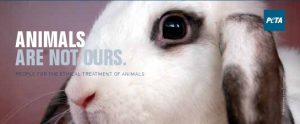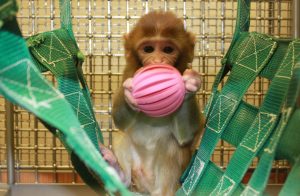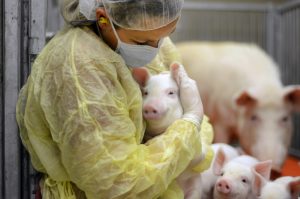The use of animals for the benefit of humans has been a controversial topic throughout history. Man has continued to debate the moral status of animals, and many have attempted to define animal’s place in society. These ethics influence the social barriers surrounding xenotransplantation.
Ethical Approaches to Animal Rights in the Context of Xenotransplantation:
Peter Singer & Utilitarianism — Moral Consideration for Animals

- Singer has advocated for animal equality and argues that animals should be extended moral consideration because they have the capacity to suffer and experience pleasure.
- Utilitarianism is a practical approach to decision making:
- Consider the number of individuals that will benefit and the number of individuals that will suffer as a result of the action
- The moral action will be the one that achieves the greatest sum of aggregate happiness — “the greater good”
- Less practical in the context of using animals as organ donors:
- If animals are to be given moral consideration, it appears that more animals will suffer than humans will benefit —how does this affect the sum?
- Whose suffering is more important? Human or animal?
- Is the life of a human more valuable than the life of a pig?
- Is the life of a human worth more than a lifetime of suffering for an animal?
Tom Regan & Rights-Based Ethics— Animal Rights

Animal Rights movement (Courtesy of PETA)
- Regan believed that animals have intrinsic value, possessing a conscious awareness of a life that matters to them, regardless of its value to humans.
- Animal rights should be founded on the same ethical grounds that human rights were founded, because both man and animal are each the subject-of-a-life
- Human rights = Animal rights
- Believed that the exploitation of animals for the benefit of mankind is morally abhorrent
- In the context of xenotransplantation:
- Rights of a human organ donor vs. the rights of an animal organ donor
- Human organ donation may only occur with explicit consent
- Animals cannot give consent, therefore, it is morally unacceptable
Bernard Rollins & Virtue ethics — Animal Welfare

Enrichment for lab animals
(Courtesy of Wisconsin National Primate Research Center, 2014)
- Rollins has advocated for an animal’s right to express their nature— to acknowledge and respect the “pigness of a pig”
- Believes modern animal suffering can be attributed to the deprivation of a life that allows them to express their evolutionary physiological and behavioural adaptations
- New social ethic of “animal welfare”:
- It is morally acceptable to use animals for the benefit of mankind if their needs can be met, suffering is minimized and animals are able to express their nature
- In the context of xenotransplantation:
- Manipulating an animal’s genome interferes with the “pigness of a pig” — how much genetic manipulation changes what makes a pig a pig?
- Effects of gene modification can result in suffering & may change their needs in ways the researchers do not understand — how can these unique needs be met?
- Sterile rearing environment for animal donors restricts social interactions & prohibits natural materials
- If these conditions prevent researchers from meeting the welfare needs of animals, it is not morally acceptable to use animals in this way

Compassionate care for animals used in research
(Courtesy of Americans for Medical Progress)